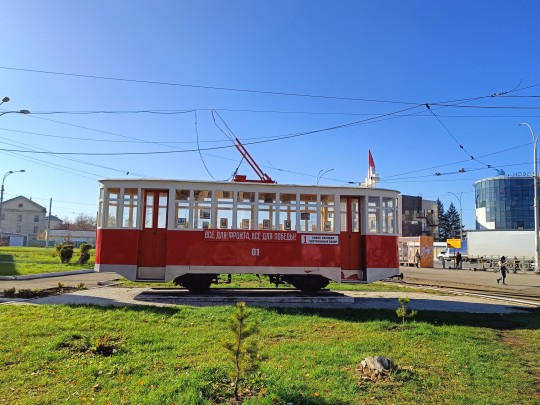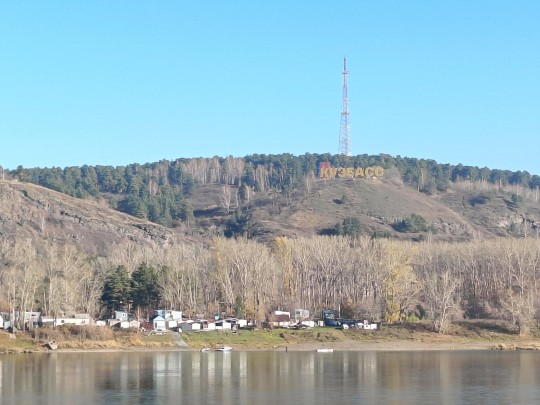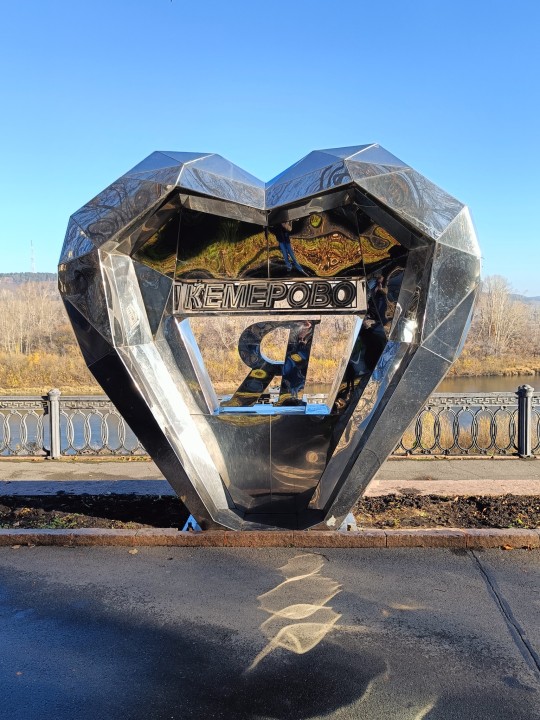#kuzbass
Photo


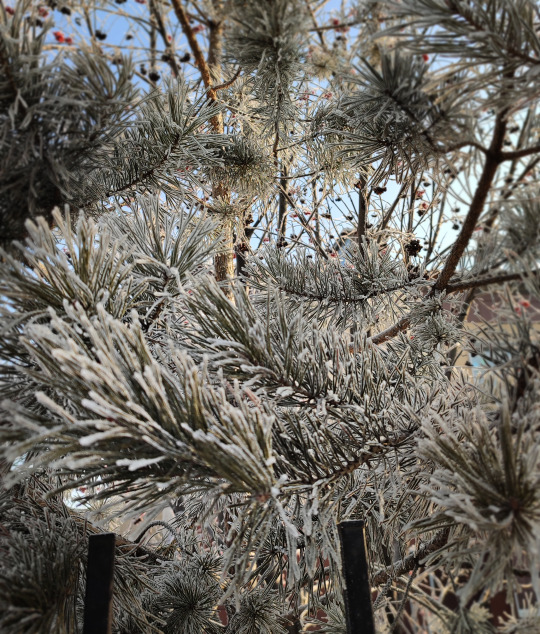

It was fucking freezing
1 note
·
View note
Text



Зорька обыкновенная, или Лихнис халцедонский (лат. Lychnis chalcedonica).
Народные названия этого ярко красного цветка: боярская спесь, баронская спесь, гвоздика полевая, красота девичья, красавица американская, красный крест, огненный цвет, мыльница (север Кузбасса) и др.
Lychnis chalcedonica.
Popular names for this bright red flower: boyar arrogance, baronial arrogance, field carnation, girlish beauty, American beauty, red cross, fiery color, soap dish (north of Kuzbass), etc.
#русский tumblr#россия#июль 2023#лето#природа#природный сад#сад#цветы#красные цветы#лихнис#макрофото#мои фото#russia#summer#july 23#nature#nature photography#my photos#beauty of nature#nature garden#garden#flowers#red flowers#lychnis#my photo#original photography#photographers on tumblr#macrophotography
107 notes
·
View notes
Text
🇷🇺 🏥 🚨 AS A RESULT OF HEAVY WINDS, WOMAN CRUSHED UNDER HEAVY SIGN IN RUSSIA
As a result of a storm that hit the Kuzbass region of Russia in southwestern Siberia, a business sign affixed to a building in Novokuznetsk was torn down and fell on a woman walking down the sidewalk as she exited the building.
The sign instantly crushes her under its enormous weight, however, with the arrival of help from some good samaritans, the woman survived and was transported to hospital.
#source
@WorkerSolidarityNews
#russia#russia news#russia storm#storm#hurricane#world news#global news#international news#breaking news#current events#eurasia#eastern europe#news#russian news#weather#storms#WorkerSolidarityNews
8 notes
·
View notes
Text
Сделан в СССР ⭐️ № 1 (Made in USSR Pt. 1)
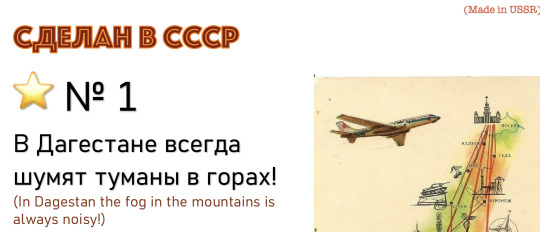
№ 1-A [33 сек.]
Белая Ночь (место: Питер) - white/bright night, ad for female perfume (location: Saint Petersburg)
№ 1-Б [15 сек.]
Пельмени, реклама в 1936 г. (место: город в Кузбассе) - Pelmeni are very famous dumplings usually filled with pork/beef (location: a city in Kuzbass, e.g. Novokuznetsk or Kemerovo)
№ 1-В [28 сек.]
Зубная паста для детей (место: город в Северные Украине, но не Киев) - toothpaste for children (location: North Ukrainian city expect Kyiv, e.g. Shytomyr, Rivne, Chernihiv…)
№ 1-Г [27 сек.]
Опять пельмени «для любимых мужчин» (место: на Байкале) - Again Pelmeni “for beloved men” (location: Baikal Region, e.g. Irkutsk)
№ 1-Д [21 сек.]
Создадим вокруг Ленинграда мощную картофельно-овощную базу! (место: Балтика) - Let’s build around Leningrad's heavy potato-vegetable bases (instead of war camps)! During the Leningrad blockade in the 1940s (location: Baltic region, but not Piter/Leningrad)
№ 1-Е [20 сек.]
Сладости из молочные продуктов (место: город а Таджикистане) - no text but explanation only for English necessary: typically milk/caramel based sweets in the USSR for tea time (location: Tajikistan 🇹🇯❤️, any city e.g. Dushanbe)
№ 1-Ё [26 сек.]
Томатный сок (место: Южная Волга, Астрахан 😍) - tomato juice (location: South Volga Region, e.g. Astrakhan)
№ 1-Ж [30 сек.]
Мороженое «Эскимо» (место: Архангельск / Белое море) - ice cream “Eskimo” (location: the White Sea, only know Arkhangelsk)
№ 1-З [60 сек.]
Кукуруза в банке (место: Северный Казахстан) - corn conserved (location: Northern Kazakhstan, e.g. Petropavl, Kostanay, Akqbote) Казахски написание, проблемы
№ 1-И [15 сек.]
Бонус Пупс с Фасолью 🫘🌬️
7 notes
·
View notes
Text
Russia: Belgorod close Round 27 with 3 points
🇷🇺| Belgorod close Round 27 with 3 points.
Today’s result:
• Belogorie Belgorod - Kuzbass Kemerovo 3-0 (25:21, 25:23, 25:17)
Round 27 of 2022/23 PARI Суперлига мужчины has been closed today with a clear straight sets win of Belogorie Belgorod, now fifth in the standings and with these 3 points at -1 from Lokomotiv Novosibirsk (who yesterday won on the field of Surgut) over Kuzbass Kemerovo (25:21, 25:23, 25:17). With the only exception of second set, the winners proved to be better of the rivals, who remain at No. 9 in…
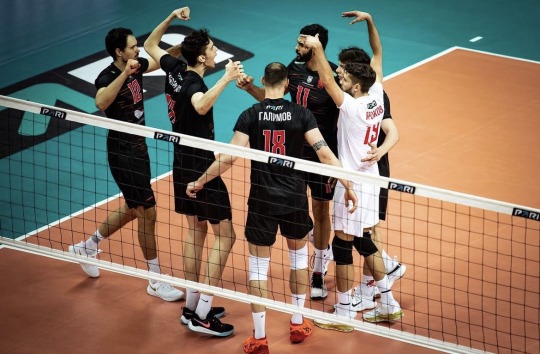
View On WordPress
4 notes
·
View notes
Photo
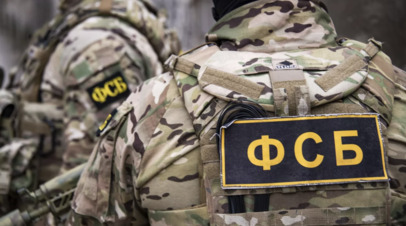
В Кузбассе задержали подозреваемого в подготовке диверсий на Транссибе
В Кузбассе задержали диверсанта, причастного к подготовке поджогов релейных шкафов на железной дороге.
Читать далее
Подробнее https://7ooo.ru/group/2024/04/16/323-v-kuzbasse-zaderzhali-podozrevaemogo-v-podgotovke-diversiy-na-transsibe-grss-299579551.html
0 notes
Text
LIGA and SPS TECHNO held a presentation of equipment in Novosibirsk!
From February 13 to 16, the International Exhibition “Siberian Construction Week” was held at the Novosibirsk Expo Center.
Despite the general construction theme, this year at the exhibition site there was a presentation of KDT equipment and aspiration systems, organized by LIGA and its official distributor SPS TECHNO LLC (Krasnoyarsk).
It was absolutely unexpected that in addition to the guests invited by the company, there were many potential clients from outside visitors, especially considering that LIGA has equipment for working with wood and for producing doors. But that’s how I reasoned. The director of the SPS-Techno company, Alexander Myagkov, shared that the majority of those who are interested in machines for making furniture come to the presentation at the stand.
Furniture makers came from neighboring cities of Altai and Kuzbass. Furniture companies in Novosibirsk lack a specialized exhibition in which they would believe and become its permanent participants.
As part of the exhibition, a championship in furniture design and assembly was held, and the winners were awarded prizes.
As part of the business program, the founder of the “International Furniture Consulting Center” and the “Furniture Business Knowledge Club” Sergei Alexandrov spoke.
Business furniture - Bikea
1 note
·
View note
Photo

В Кузбассе восстановили почти 58 тыс. гектаров лесов
В Пресс-службе правительства Кемеровской области сообщили, что в рамках нацпроекта "Экология" в Кузбассе успешно восстановили почти 58 тысяч гектаров лесов за последние пять лет. Это больше показателей предыдущего периода и свидетельствует о значительном прогрессе в сохранении лесных массивов, пишет ТАСС.
Подробнее на https://7ooo.ru/group/2023/12/13/671-v-kuzbasse-vosstanovili-pochti-58-tys-gektarov-lesov-grss-264671040.html
0 notes
Photo
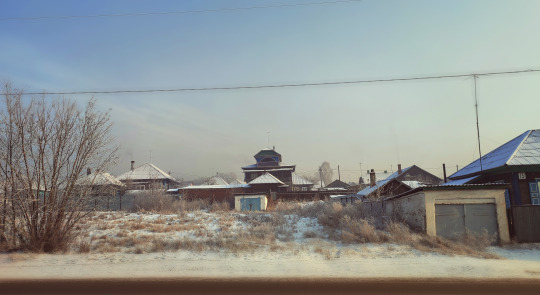
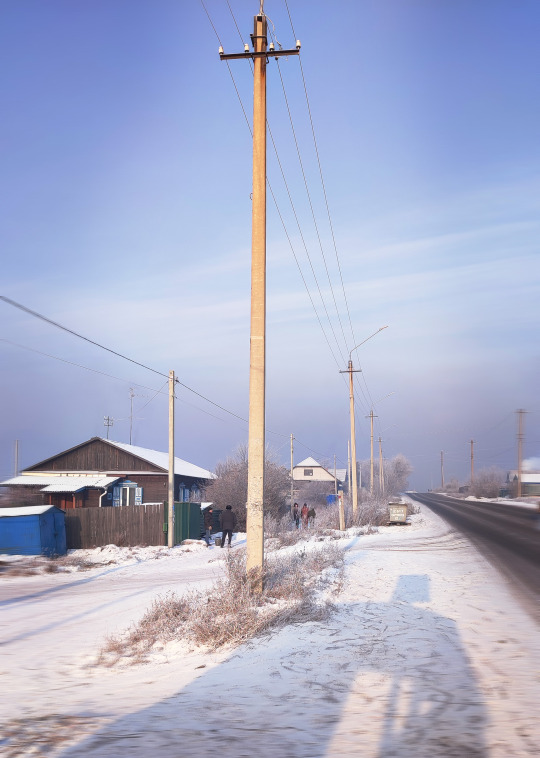
My hometown
1 note
·
View note
Link
[ad_1] Russian television aired what is perhaps one of the world’s shortest political debates after none of the candidates for next month’s regional elections showed up for the event. The state broadcaster Rossia’s regional affiliate in the Siberian region of Kemerovo went ahead with the debate program on Wednesday evening despite the no-shows. “Hello, we’re broadcasting joint campaign events for the elections to the legislative assembly of Kuzbass,” said the host Andrei Toropov. “No one came to the studio, so regular programming will follow,” he added, wrapping up 15 seconds of the broadcast. Candidates from the Communist Party and the far-right Liberal Democratic Party (LDPR), who are leading the local party tickets, were supposed to take part in the televised debate, according to the business daily Kommersant. Communist Party secretary Nikolai Mukhin told Kommersant that their candidate, Yekaterina Gruntova, could not make it because of a previously scheduled meeting with constituents. Gruntova’s counterpart from LDPR, Stanislav Karpov, was also tied up in campaign events with party leader Leonid Slutsky, who was visiting the region at the time of the broadcast, according to LDPR representative Kirill Pravin. The ruling United Russia party and A Just Russia For Truth vowed to take part in upcoming debates broadcast over radio, Kommersant reported. The current governor of the coal-rich Kemerovo region, Sergei Tsivilev, is up for re-election in September alongside candidates for the regional legislative assembly, where United Russia enjoys a comfortable majority of seats. [ad_2]
0 notes
Text
On the eve of the February 2022 invasion of Ukraine, Russian propagandists and pro-Kremlin bloggers started to publish pictures of military equipment located near the border with Ukraine and painted with the Latin letters Z and V. The letter Z, in particular, soon became a key element of the propaganda campaign justifying the Kremlin’s war of aggression. In the 13 months since the start of the war, the letter’s popularity and visibility have not waned. Today, Z is a distinctive symbol of the most radically inclined faction of the “party of war,” which supports the most brutal combat methods, including terrorism. Acolytes of that ideology currently share a tenuous alliance with the Kremlin. Though the so-called Z-heads’ goals hardly align with those of Putin’s inner circle, many less powerful politicians are eager to appropriate Z for their own benefit. Meduza explains the ideology behind Z and the subculture most strongly associated with this odd symbol.
The following essay was adapted from an edition of Signal, Meduza’s daily newsletter about histories and ideas that can help us understand today’s news. You can subscribe to Signal (it’s in Russian) here.
Whence Z?
There are a few ideas, with varying degrees of plausibility, about who invented the symbol.
The main theory says that, during the period when Russian troops were massing at Ukraine’s border, the letters Z and V marked military equipment belonging to the Western (zapadny, in Russian) and Eastern (vostochny) Military Districts. As early as spring 2022, Meduza’s sources said that the Russian Defense Ministry’s public relations team, headed by Defense Minister Sergey Shoigu’s adviser, Andrey Ilnitsky, had a major role in promoting the letters as symbols of solidarity with the Russian army. The ministry may have been working in tandem with state propaganda television network RT. In early March, the channel started selling t-shirts supporting the “special operation,” emblazoned with the letter Z.
Wagner Group paramilitary cartel founder and catering tycoon Evgeny Prigozhin’s various business concerns may also have been involved the media campaign around Z and V. Political adviser Igor Mangushev, who’s been linked the Internet Research Agency (Prigozhin’s troll factory) claimed that he “and his comrades” thought of using Z on social media. In February 2023, Mangushev died after being shot in the back of the head in the Luhansk region. The circumstances of his murder are unclear.
In the spring of 2022, a wave of flashmobs in support of Russian military aggression swept Russia — they took place at businesses, schools, colleges, universities, kindergartens, nursing homes, and even inpatient psychiatric facilities, and participants flaunted the letter Z. The support of state-funded enterprises allowed these actions to assume a mass character.
Then, Russian officials at various levels started using Z consistently, alongside the propagandistic slogan “We don’t abandon our own.” For example, Mikhail Razvozhaev, the governor of annexed Sevastopol, named his Telegram channel RaZVozhaev, and Sergy Tsivilev, the governor of Russia’s Kemerovo–Kuzbass region, claimed that Kuzbass would be spelled in official documents as KuZbass (this turned out to be untrue).
On social media, Russian celebrities of various calibers diligently promoted Z, from actor and director Vladimir Mashkov and singer-songwriter Grigory Leps to Instagram influencers and TikTok stars. A concert at Luzhniki stadium on March 18, 2022, which coincided with the eighth anniversary of the annexation of Crimea, was called “Za mir bez natsizma” (“For a world without Nazism”) and Z was everywhere: on posters, badges, flags, decorations, and even the clothing of State Duma deputies like Dmitry Pevtsov and artists like Polina Gagarina, who were in attendance.
From the beginning, the symbol also had another, more frightening usage: anonymous vandals painted Z on the apartment doors of activists and journalists who condemned the invasion of Ukraine. Russian soldiers left the letter on Ukrainians’ looted homes as they retreated from occupied territory.
Z developments since the start of the war
The fate of Z as a symbol of Russian military aggression in Ukraine is directly connected to the successes and failures of Russia’s army.
Z was clearly conceived as a symbol of solidarity, as if to say, “We unanimously support the authorities and the army in the ‘de-Nazification and demilitarization of Ukraine,’” “protecting the children of the Donbas,” “de-Satanization,” as well as, of course, the struggle against the “Collective West.”
In the early days of the invasion, the Russian authorities hoped to repeat the marketing success of “polite people,” a propagandistic euphemism for Russian soldiers during the 2014 takeover of Crimea. According to Moscow’s plans in February 2022, the invasion was supposed to happen so quickly that no one would have either the time or the inclination to ask any clarifying questions or express any doubts.
Z’s popularity has declined in step with Russian troops’ loss of initiative at the front. The peak of Russian support for the war seems to have occurred in June and July 2022, sociologist Elena Koneva believes.
Within six months of the start of the full-scale war, support for the “special military operation” began to decline, even according to data from Russia’s state-owned public polling institution. At that point, Z turned up more rarely on the social media accounts of Russian propagandists, war bloggers, and pro-Kremlin influencers.
It became obvious that spontaneous marketing using the letter Z was a fairly bad idea. Putting Z on product packaging didn’t improve sales. Drawing a Z on a shop sign or a store window didn’t bring in more customers. Performers who displayed Z didn’t see their popularity soar.
The letter has also become a source of civic discord. People regularly damage street installations featuring the letter Z, and when the authorities manage to catch those responsible, they charge them not with vandalism but with “discrediting the armed forces.” Last December, vandals in many cities rejected the local authorities’ decision to use Z in holiday decorations.
If Z ever did symbolize the patriotic fervor of a truly mass character, rather than a PR stunt, that fervor quickly melted away to nothing.
But Z is still everywhere
A particular political subculture — we can call it the Z subculture — has recently matured Russia.
Scholars often use the term “political subculture” to label groups of people who generally fit into their current political system, but who hold a handful of views that differ sharply from mainstream consensus.
Members of political subcultures, writes political scientist Walter Rosenbaum, share some ideas with the political mainstream but offer alternative (not necessarily radical) answers to systemic challenges. Examples of political subcultures in the U.S. include such groups as democratic socialists, many of whom are registered as voters with the Democratic Party but, on a range of questions (mainly about social entitlements and the role of the state in economic policy), support much more radical positions than their fellow Democrats.
The Z movement has no strict organizational structure and no specific ideology, though both elements exist in incipient forms: informational networks (chiefly Telegram “war correspondents”), fundraiding for the Russian army, and, of course, promoting uncritical patriotism and aggressive militarism.
Z-heads (the Russian language hasn’t yet settled on whether they should be called zetniks, zetists, or zetchiks) nominally support state policies — if Putin wants war, they want war — but they demarcate themselves clearly from loyalists. They’re critical of how the Kremlin formulates (or fails to formulate) the war’s political goals, and they often question the methods the Russian army uses to try to accomplish those goals.
They want total war and the suspension of “normal life.” They rail against the Kremlin, which hasn’t gone as far as they’d like, and against ordinary citizens, who clearly aren’t ready for such a severe step. This leaves the Z movement far from the mainstream — a legitimate subculture.
The Z subculture is also becoming increasingly aware of itself as a subculture, recognizing its own marginality. The nationalist writer and former politician Zakhar Prilepin once constantly bemoaned the fact that neither the state nor big business supported Z art (literature, film, theater, etc.) and didn’t demand that citizens and consumers become active patriots. Prilepin has quieted down since he left to join the war, though his comrades continue to lodge similar complaints.
The name of one pro-war Telegram channel, which translates roughly to “Z War Junkies,” is very characteristic. Literary historian Mikhail Edelshteyn examined the emerging phenomenon of Z poetry, pointing out that it’s characterized by a cult of death and contempt for all “normalcy.” The lives of its lyric heroes acquire meaning only through extreme danger and existential struggle.
The Z subculture differs from standard-issue Putinism in that it has been ideological from the beginning. Its acolytes have a saying: “Russia’s borders should extend to Pluto’s orbit.” It is a joke, of course, but it contains a grain of truth (particularly since Putin once said that “Russia’s borders end nowhere”). It emerges from an imperialism so radical that current realities, like the existence of an independent Ukraine or NATO, seem little more than annoying obstacles on the road to a utopian global empire.
This ideology is sometimes called turbopatriotism. Though the full-scale war in Ukraine has become an important focal point, turbopatriotism arose well before Russia’s February 2022 invasion. The conflict in eastern Ukraine (which began in 2014) and especially Russia’s invasion in 2022 did, however, crystallize Russian turbopatriotism into its current form.
On the other hand, a public commitment to the Z subculture, for many opportunistic politicians, activists, and businesses, is a clear opportunity to win people over. In the past year, writes Meduza special correspondent Andrey Pertsev, supporting Z has become a kind of homemade career boost for many Russian officials. Long before the current war, Vladimir Putin demanded loyalty above all else from those closest to him. Since February 24, even loyalty has not been enough. High-ranking officials like State Duma Speaker Vyacheslav Volodin, Putin’s deputy chief of staff Sergey Kiriyenko, and United Russia senior party official Andrey Turchak set the trend, and politicians in lower positions have followed suit. Pertsev explains that the Kremlin is prepared to promote governors and mayors who unconditionally follow the “Z course.”
There is a paradox in this arrangement, though: the Kremlin appears fairly unsympathetic to Z culture, with its turbopatriotism and its demands for total mobilization and self-sacrifice. But the Russian authorities have little choice but to rely on Z culture’s adherents as allies — every other segment of Russian political culture either protests the war or is completely apathetic.
Russian officials from outside of the major cities have caught on quickly to the mood in the Kremlin. They’re prepared to go to the occupied territories in Ukraine, just to climb the career ladder.
For example, in July, one Sergey Eliseyev began running the “administration” of the occupied Kherson region. Eliseyev is not well-known for anything, even in his hometown of Kaliningrad, where he served as the first deputy chairman of the local administration. Eliseyev was back home by November, but his “business trip” to Ukraine greatly increased his political capital in Russia. The excursion also paid well: Anton Alikhanov, the Kaliningrad region’s governor, said that officials in the occupied territories got double pay.
The paradoxes multiply: the Kremlin’s main source of support isn’t actually the members of this marginalized subculture, but those who imagine themselves to be members. Provincial politicians like Eliseyev obviously have no intention of dying under the Z banner; they intend to fly it while living as comfortably as possible. They look on the true Z-heads as useful idiots.
Furthermore, the Kremlin clearly doesn’t want to become seriously dependent on the Z movement. Putin’s inner circle is trying to buy loyalty and enthusiasm for the war. It’s working, for now, but if and when that stops, it will raise the question of who is whose useful idiot.
Postscript
In the 2013 horror film World War Z, which is based on a novel of the same name, Brad Pitt travels the world, battling zombies (hence World War Z). The film was heavily re-edited before its release. In the original version, Brad Pitt appears in one scene set in Moscow, where his character was sent to fight in the zombie war. During a battle at Red Square, Pitt makes an important discovery: the cold Russian winter, which has famously helped defeat invaders before, also works against zombies. They slow down, start to freeze, and become more vulnerable. In the final cut, the entire story line with General Frost and his victory over Z was removed.
0 notes
Text
Russia: Games 1 of quarterfinals without upsets - all games ended in straight sets!
🇷🇺| Games 1 of quarterfinals without upsets - all games ended in straight sets!
Quarterfinals Game 1:
• Lokomotiv Novosibirsk (4) - Belogorie Belgorod (5) 3-0 (25:21, 25:23, 25:23)
• Dynamo Moscow (2) - Fakel Novy Urengoy (9) 3-0 (25:18, 25:20, 25:19)
• Zenit Kazan (1) - ASK Nizhny Novgorod (11) 3-0 (25:20, 25:18, 25:17)
• Zenit St. Petersburg (3) - Dynamo-LO (7) 3-0 (25:14, 25:17, 25:17)
Quarterfinals of 2022/23 PARI Суперлига мужчины, Russian Superliga, started today without any upset.
Regular season leaders Zenit Kazan easily defeated No.11 ASK Nizhny Novgorod, who surprisingly eliminated Kuzbass Kemerovo in previous stage of the competition, with a clear 3-0 (25:20, 25:18, 25:17), and the same did No.2 Dynamo Moscow against No.9 Fakel Novy Urengoy (25:18, 25:20,…
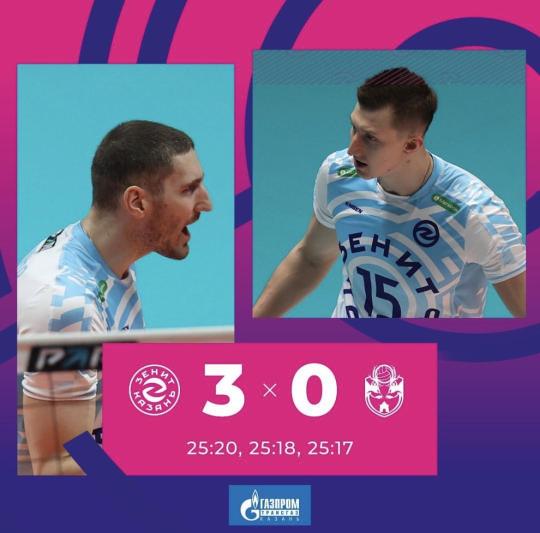
View On WordPress
1 note
·
View note
Photo
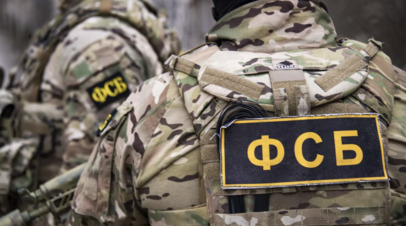
В Кузбассе задержали подозреваемого в подготовке диверсий на Транссибе
Подробнее https://7ooo.ru/group/2024/04/16/891-v-kuzbasse-zaderzhali-podozrevaemogo-v-podgotovke-diversiy-na-transsibe-grss-299575748.html
0 notes

